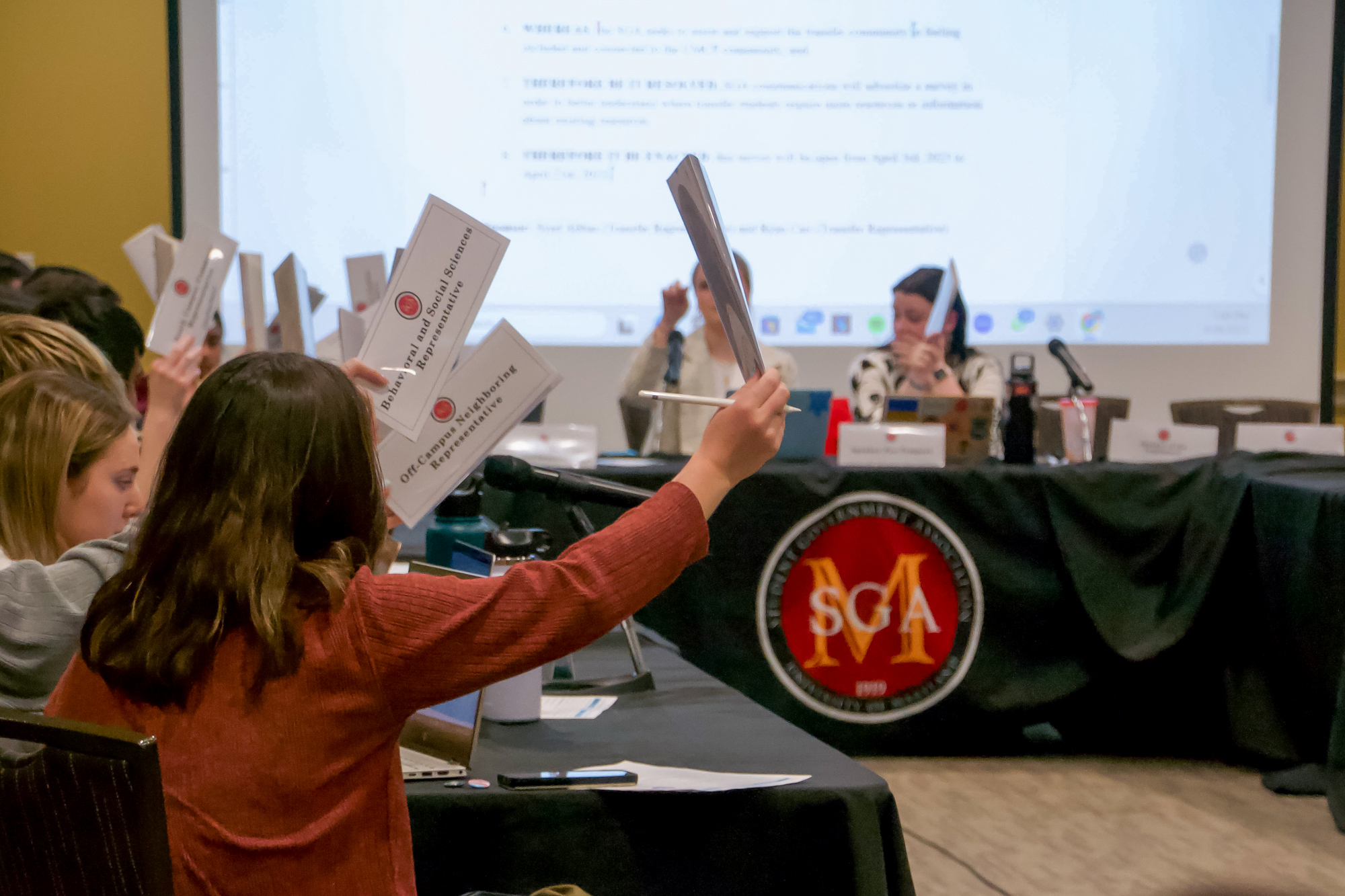The University of Maryland SGA voted Wednesday to support making this university Bee Campus USA certified, which would create initiatives that prioritize sustainability and biodiverse spaces on the campus.
A Bee Campus USA certification — a certification given to college and university campuses by The Xerces Society for Invertebrate Conservation — would also require adding classes on sustainability to this university’s course offerings. Simon Younes, a junior government and politics and public policy major who sponsored the bill, said the university already meets many of the requirements to be a bee-certified campus.
“I don’t think it’ll change too much,” Younes said. “Our campus is already doing it, but we haven’t really been able to advertise it as such. It’s so important to get the campus certification, so that we can show that we are actually doing all these things.”
Currently, the university president’s office is reviewing the bee campus proposal, according to Michael Ellis, a horticulturalist with this university’s Arboretum and Botanical Garden.
Through a committee called PollinaTerps, staff, students, faculty and administrators have been pushing to certify the campus with Bee City USA. According to Younes, one of the requirements for becoming a bee-certified campus is to establish a committee.
[UMD sociology alum starts company teaching virtual cooking classes]
David Hawthorne, a professor in the entomology department at this university, said obtaining this certification could be beneficial to the well-being of the campus.
“Pollinators on our campus, they have an important functional role in maintaining the health and reproductive success of the plants that are on our campus and they also are an aesthetic element,” Hawthorne said. “When we see beautiful butterflies and bees around, it’s beautiful, makes us feel good and makes us happy.”
Additional courses related to plants, pollinators and their interactions would do enormous good for this university, Hawthorne said. The new courses could also influence other schools to follow suit and become better habitats for bees and plants, he added.
Younes is hopeful the proposal will pass before Maryland Day on April 29, he said.
Alana Ginsburg, a junior environmental science and policy major, is a member of the Student Government Association’s sustainability committee, which advocated for the passage of the bill.
“I think that an important part of making our campus a better environment is having native plants and a thriving ecosystem,” Ginsburg said. “In order to … have a healthy ecosystem, we need to have pollinators.”
CORRECTION: A previous version of this story and its headline misstated that this university could become a bee-certified campus. This university could become Bee Campus USA certified under The Xerces Society for Invertebrate Conversation’s requirements. This story and its headline has been updated.



